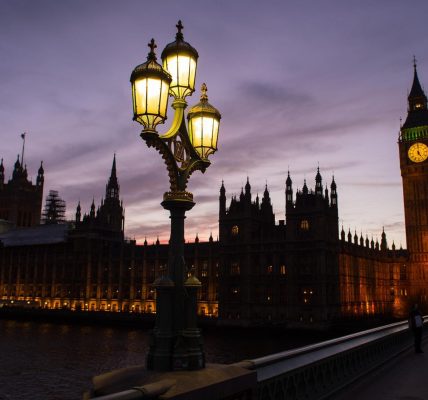'Small-scale, silent' versions of Carillion collapse are happening every year because of auditors' failings, says think-tank IPPR
'Small-scale, silent' versions of Carillion collapse are happening every year because of auditors' failings, says think-tank IPPR
A large number of “small-scale, silent” versions of the collapse of construction giant Carillion are likely happening every year because of failings in the way auditors are assessing firms’ finances and governance, it is claimed.
Think-tank IPPR North says the audit sector which scrutinises the financial statements of big and small companies is “failing society” due to its limited scope and lack of rigorous auditing practices.
Its new report says auditors should act as the ‘trusted referees’ of corporate Britain, impartially flagging risky finances, communicating informatively about the state of a business to investors and society, but too often the opposite is the case.
And it says the way audits are currently conducted is enabling ‘boom and bust’ cycles, where some businesses are able to present an overly optimistic version of their finances despite weak financial foundations that eventually lead to business collapses or seriously weakened firms.
Read More
City of York Council paid former chief exec £117,000 more than it needed to in s…
The report’s authors argue that events similar to the collapse of Carillion, which saw thousands of jobs lost and was the UK’s biggest corporate failure in decades, are playing out in smaller forms in other UK businesses every year.
And it says that while the Government recognises the problem, three years on from the collapse in 2018 “no significant policy action has been taken”. But the Government says its proposed reforms will “strengthen the UK’s position as a world-class destination for investors by improving the quality of corporate reporting and sharpening focus on long-term success of large companies”.
A report by MPs into the collapse of Carillion said the firm’s business model “was a relentless dash for cash, driven by acquisitions, rising debt, expansion into new markets and exploitation of suppliers”.
It added: “It presented accounts that misrepresented the reality of the business, and increased its dividend every year, come what may.”
The IPPR report says KPMG, as Carillion’s main auditor, was heavily criticised for its role in the collapse but all of the ‘big four’ audit services firms were involved at some point during the run-up and collapse.
It added: “While prominent audit failures like Carillion loom large, many do not make the news or may indeed never be discovered and thus exert ongoing indirect costs on the economy.
“This means there are potentially a large number of small-scale, silent Carillions happening every year.”
According to the report, current audit practices can lead to excessive risk taking and bad investment decisions, all while enabling some bosses, intermediaries and shareholders to get large pay-outs. And the costs of business collapse ultimately fall on workers, suppliers and pension holders, with knock on costs for the economy in the billions.
The Government is currently consulting on audit sector reform and published a white paper in March but IPPR says “there is a real risk that unambitious reform would leave some of the central problems unaddressed”.
It says the reforms should expand the remit of auditors to also be trusted referees of firms’ governance, climate risks and use of personal data as well as shining a light on aggressive accountancy practices, making it clear to investors and society if information about a firms’ finances lacks transparency.
Carsten Jung, IPPR senior economist, said: “Auditors should be the gatekeepers helping keep financial mismanagement at bay, yet too often they are failing to do so and are failing society. To meet society’s expectations and needs, there needs to be profound audit sector reform.
“A well-functioning audit sector should be expected to flag problematic accounting practices and risky business activities before they turn into damaging debacles. However, the current legal set up does not require this from auditors.
“Restore public trust in audit firms is essential for them to become the trusted referees of corporate Britain. With this status gained, it could lead to a virtuous cycle in which trust fosters investment, business development and economic dividends.”
A spokeswoman for the Department for Business, Energy and Industrial Strategy said: “The Government has already published proposals to strengthen our corporate governance and audit practices, helping to ensure that the UK remains a world leader in corporate transparency and advances its status as a place of the highest standards in audit.
“The proposals will break up dominance of “Big Four” audit firms and require large businesses to be more transparent about their finances, helping to avoid company failures and safeguard British jobs for the future.”
A spokesman for the Financial Reporting Council regulator said: “The FRC supports the Government’s proposals to enhance the quality of corporate governance, corporate reporting and audit which would be underpinned by a strong and effective regulator.
“High standards of audit, corporate reporting and corporate governance are vital to reinforcing the UK’s position as a key global centre for investors and businesses.”










